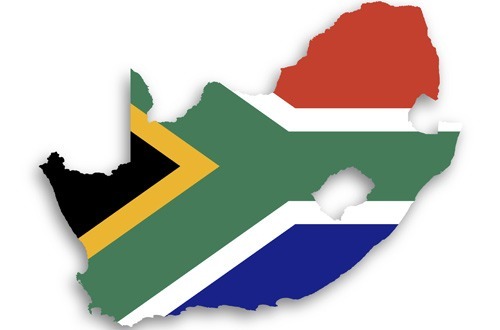The winners of the Dark and Lovely x SLA Beauty Accelerator have been announced.
The first place winner of $5,000 was Violet Amoabeng of Skin Gourmet (Ghana). Violet is the Founder of Skin Gourmet, a premium skincare line made from ingredients sourced from the wild – her products are so pure you can eat them!
The second place winner of $3,000 was Louisa Kinoshi of Beauty Revolution Studio (Nigeria). Louisa is the Co-Founder of Beauty Revolution Studio, a digital beauty network for African women.
The third place winners of $1,000 were Deveash Jivan and Sherri Rhode of FreshMe (South Africa). Deveash and Sherri are Co-Founders of FreshMe which takes brands to salons and brings people to brands in the informal salon market.
Ten weeks ago, five startups were chosen from over 500 applicants to participate in the 2017 Dark and Lovely x SLA Beauty Accelerator, entrepreneurship development program worked to help early stage beauty entrepreneurs in the beauty industry grow and scale their businesses, and concluded in an exciting pitch competition this week in Johannesburg.
2017 JCSE ICT skills Survey Highlights Sector’s Ongoing Challenges
The 2017 Joburg Centre for Software Engineering (JCSE) ICT Skills Survey by Wits University The state of the South African revealed the challenges facing the sector – namely the state of the South African economy which continues to restrict growth in the demand for ICT skills, delays in implementing policies and a lack of improvement in South Africa’s basic education.
This is aggravated by a lack of current, co-ordinated data about the ICT sector in South Africa, which is leading to fragmented policy initiatives which cannot be properly measured.
South Africa’s ICT sector is estimated to contribute more than R250 billion (approximately 6%) to the country’s R4 trillion GDP (MICT SETA, 2017).
Gartner’s John-David Lovelock forecast that South Africa’s IT spend would reach R266 billion in 2017,up 2,4% from 2016 (Moyo, 2017). Within this modest increase, software is predicted to grow by 13,2%, offsetting a decline in device spending of 4,6% and a flat communications services market.
Commenting on current skills capacity of practitioners and future skills development, Adrian Schofield, JCSE’s manager of Applied Research and author of the report, said, in a Fin24 report, that the 2017 JCSE ICT Skills Survey report highlights the increased demand for cybersecurity practitioners as well as the growth in software development.
“In some respects, it is more of the same, but there is an undeniable urgency to make progress if South Africa is to benefit from the impending global upswing in the ICT market, which is estimated to reach $4 trillion in 2018.
“In this scenario, demand for relevant skills will continue to outstrip supply, giving South Africa an opportunity to empower its black youth to fill the gap, boost the economy and extend these benefits into the broader continent.”
Professor Barry Dwolatzky, Director of the JCSE, says that the report yet again emphasises the concern at the lack of improvement in South Africa’s basic education for the majority of pupils.
“Exposure to and familiarity with ICT for all learners is essential in order to equip them to adapt the modern tools to their daily lives. Some laudable initiatives have appeared, such as the use of tablets in Gauteng schools, but they have yet to reach a sustained, critical mass for all grades of learners.”
He says that there are some successful initiatives and interventions noted in the skills development pipeline.
Sanlam Forks Out R500Mln To Support Investment In Patrice Motsepe-led ARC
South African financial services group Sanlam on Thursday reached an agreement and received approvals to fund a company jointly owned by Ubuntu-Botho Investments (UBI) and the Sanlam Ubuntu-Botho Community Development Trust for an amount of R500 million.
Sanlam said this amount assisted the joint venture to acquire shares in the newly-listed African Rainbow Capital Investments (ARCI) on market-related terms.
African Rainbow Capital (ARC) is a black-owned and controlled company and has transferred 49.9 percent of its interests in financial services companies and 100 percent of its interests in non-financial services companies to ARCI. It has retained a 53 percent interest in ARCI.
An investment in ARCI offers access to ARC’s investment portfolio and future investments in companies across various industries, as well as an opportunity to participate in the growth and value creation of a company from a relatively early stage.
Given the success of the Sanlam and UBI partnership and this important milestone in our key empowerment partners’ history, Sanlam believes the funding transaction will enable the Trust and UBI to benefit from the future growth in ARCI,” Sanlam Group chief executive, Ian Kirk said.
“Therefore, the funding transaction will not only extend the benefits of the partnership to UBI’s shareholders, but also to the beneficiaries of the Trust.”
Arguably the most successful B-BBEE deal in the financial services sector, the Sanlam and UBI deal was established in 2003 and had created R15 billion in value in 2013 after the settlement of all external debt.
Through the Trust’s investment in UBI, Kirk said beneficiaries of the Trust already gain from annual Sanlam dividends of more than R160 million, which goes into education, among other initiatives.
“This funding transaction shows our confidence in and commitment to our partnership with UBI, which we have always viewed as a long-term partnership with an anchor shareholder of more than 13 years now.
“Sanlam will continue to seek appropriate opportunities to cooperate with UBI to enhance our Broad-based Black Economic Empowerment (B-BBEE) position.” (via African News Agency)
WorldRemit Raises Funds To Target 5 Million Customers In Africa
Digital money transfer service WorldRemit on Thursday announced it has raised $40million (R543 million) to drive its next phase of global growth, targeting to serve 10 million customers by 2020, including five million in Africa.
According to the London based company, customers in Africa will be able to transfer money to 148 countries as easily as sending an instant message, using the WorldRemit app.
“This new funding will fuel our growth, and help bring our service to millions of more customers across the globe. Africa is a crucial market for us and over the next few years, we will expand our services so customers can send and receive with WorldRemit, getting the benefits of our fast, secure online service,” said Ismail Ahmed, founder and CEO at WorldRemit.
Countries in Africa which now receive remittances through WorldRemit will become send countries while the new service will make sending money within Africa faster, easier and at lower cost, the company added.
A statement from the company said the World Bank had found that inter-Africa transfers are amongst the most expensive in the world.
Money transfers to Africa account for more than half of WorldRemit’s total volume of transactions. The company currently handles 74% of remittances to popular mobile money services across Africa like MTN, Ecocash, Tigo Pesa, Vodafone M-Pesa and Airtel Money, making it the global leader in mobile-to-mobile international money transfers.
Since its last funding round in 2015, WorldRemit has launched 206 new services across the globe and has grown its transaction volume by 400%. Last month WorldRemit became Arsenal FC’s first-ever online money transfer partner.
WorldRemit is headquartered in London, with offices in the United States, Canada, South Africa, Japan, Singapore, the Philippines, Australia and New Zealand. (via African News Agency)
South Africa’s Central Bank Issues Licence To Country’s Third Cooperative Bank
South Africa’s central bank said on Thursday it had issued the first cooperative banking licence since 2011 to Ziphakamise Savings and Credit Cooperative.
“Ziphakamise Cooperative bank is deemed to have sufficient human, financial and operational capacity to function efficiently and competently as a co-operative bank,” South African Reserve Bank (SARB) deputy Governor Kuben Naidoo said.
A cooperative banking licence is one of three that the Reserve Bank issues, the others being commercial and mutual.
A cooperative bank is an autonomous association of persons united voluntarily to meet their common economic and social needs and aspirations through a jointly owned and democratically controlled enterprise.
The central bank said Ziphakamise had become eligible to apply for a licence after reaching membership of 200 and R1 million in deposits. As of June this year, it had 618 members and R4 million in deposits.
South Africa currently has two cooperative banks, the OSK Koöperatiewe Bank and Ditsobotla Primary Savings and Credit Cooperative Bank, which were both registered in 2011. (via African News Agency)







